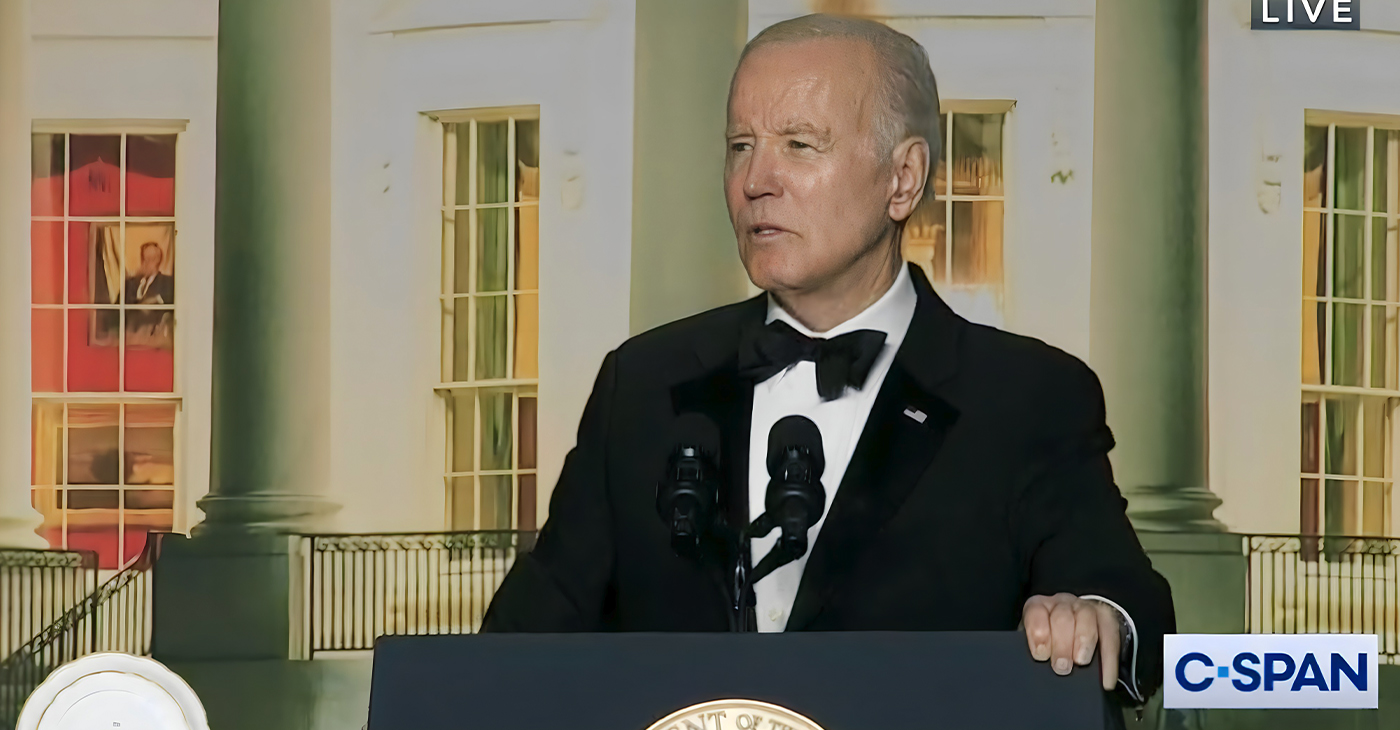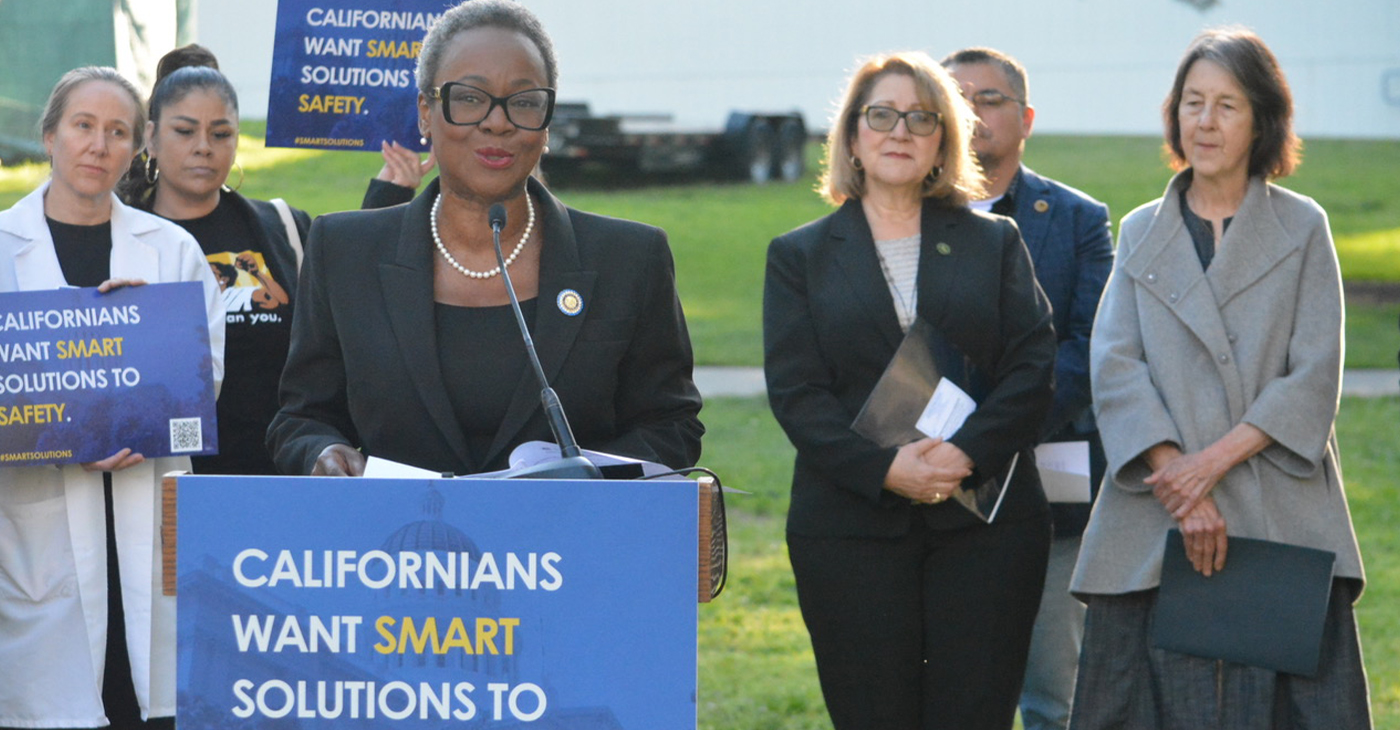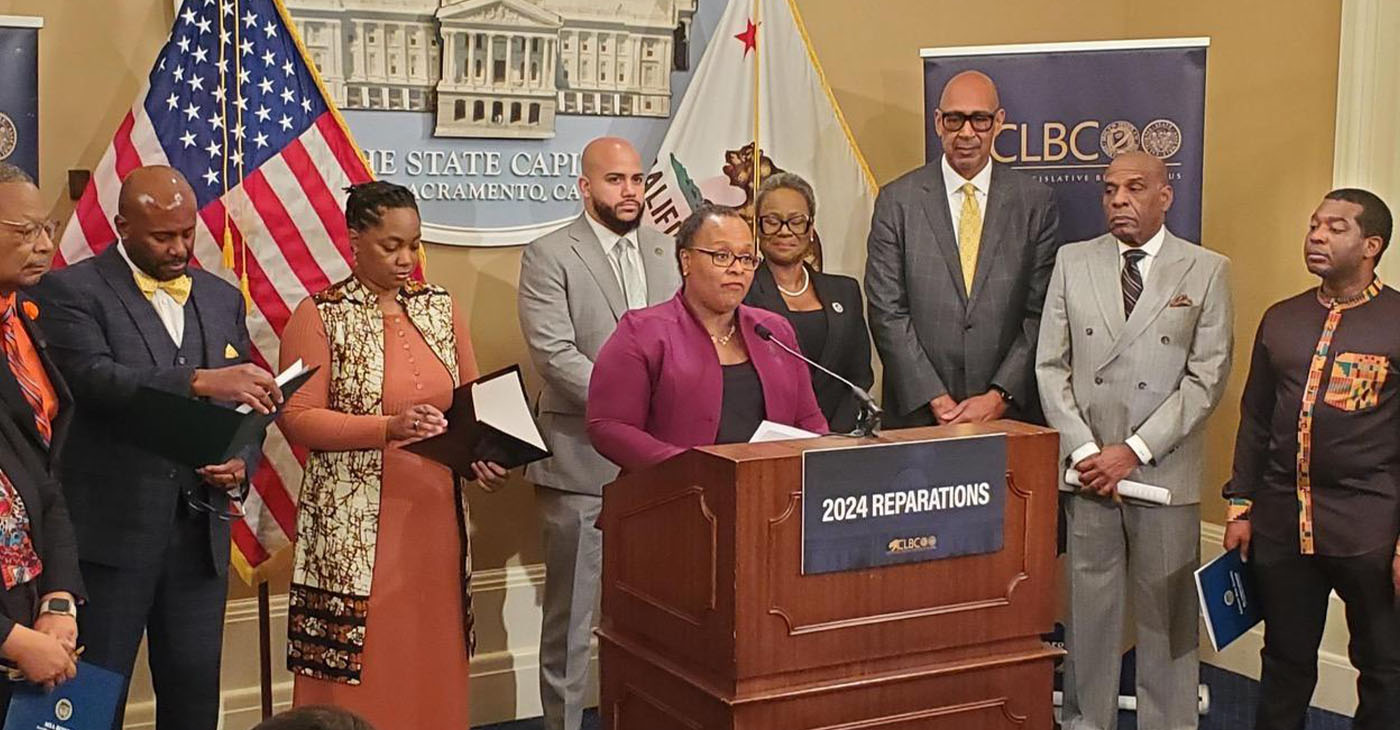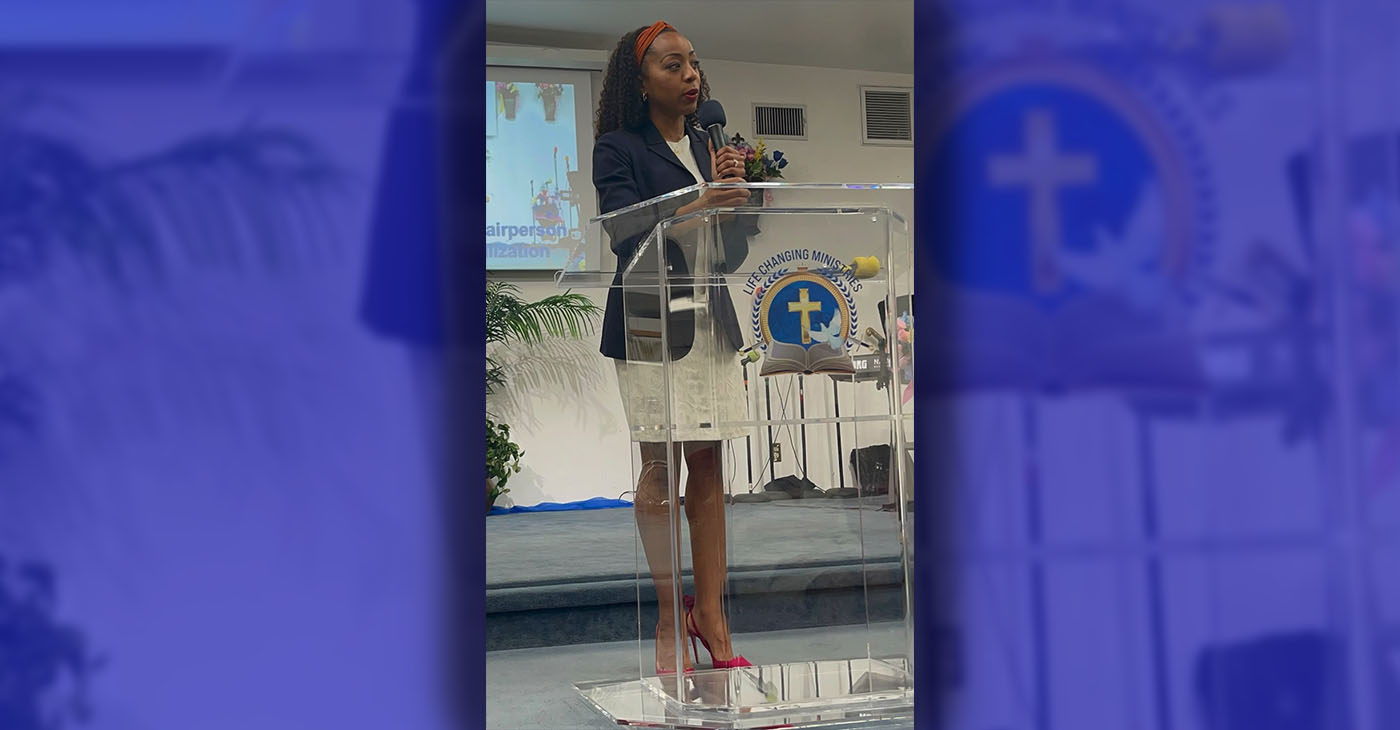Antonio Ray Harvey
California Black Media Political Playback: News You Might Have Missed
Last week, Assemblymember Mike Gipson (D-Carson) demanded Sacramento County officials stop housing foster children in a former juvenile correction center. The lawmaker, who authored Assembly Bill (AB) 175 that expanded and clarified the Foster Youth Bill of Rights, says what Sacramento County is doing is “unacceptable” and is in violation of state law.

By Tanu Henry and Antonio Ray Harvey
California Black Media
Your roundup of news stories you might have missed last week.
Assemblymember Mike Gipson Demands Sac County Remove Foster Children From Former Jail
Last week, Assemblymember Mike Gipson (D-Carson) demanded Sacramento County officials stop housing foster children in a former juvenile correction center.
The lawmaker, who authored Assembly Bill (AB) 175 that expanded and clarified the Foster Youth Bill of Rights, says what Sacramento County is doing is “unacceptable” and is in violation of state law.
“This is heartbreaking. It’s heartbreaking,” said Gipson, who explained that sex traffickers have access to the facility.
“We can find shelters for dogs, and people take those animals and roll out the red carpet,” Gipson told KCRA TV in Sacramento. “Are you telling me we can’t find placement for children in this county?”
Sacramento County officials say the decision to place 15 “high needs” foster children aged 13 to 17 years old at the Warren E. Thornton Juvenile facility is a temporary measure while the county seeks a legal and permanent solution.
Gipson Also Pushes Two Tax Bills
Last week, at a rally at the State Capitol, Gipson also discussed AB 1498, legislation he authored that would establish an Earned Income Tax Credit (EITC) minimum of $300. According to the California Budget and Policy Center, 78% of people who qualify for EITC are people of color.
Gipson also expressed his support for another EITC-related legislation, AB 1128, at the rally. AB 1128 would “remove the requirement that a qualifying child has to be younger than 6 years of age as of the last day of the taxable year.”
California Elected Officials Among Black Leaders Mourning Harry Belafonte
Black actors, musicians, businesspeople, politicians and more wrote heartfelt tributes and messages of condolences last week after news broke that Harry Belafonte had passed.
Belafonte, singer, actor, activist, philanthropist, civil rights leader and first Black person to win an Emmy Award, died of congestive heart failure April 25 at his home in New York City.
Rep. Maxine Waters (D-CA-43) paid tribute to her friend on Twitter.
“Another superstar has just passed. My dear friend, Harry Belafonte, was an extraordinarily talented singer and performer,” she tweeted. “More than that, he was a civil rights activist who marched with Dr. Martin Luther King and worked with President Nelson Mandela to end Apartheid in South Africa. We will all miss his wisdom, his advice, and his huge giving spirit.”
Rep. Barbara Lee (D-CA-12) also honored Belafonte’s life and work in a tweet.
“Sad to hear of the passing of my friend Harry Belafonte,” Lee wrote. “The world has lost not only a great musician and actor, but a civil rights activist and warrior for justice whose voice helped change America for the better. Thank you for your work, your courage, and your service.”
Democrats Shoot Down GOP-Backed Fentanyl Bills
Democrats on the Assembly Public Safety Committee last week voted down several bills aimed at addressing California’s Fentanyl crisis.
The measures would have strengthened penalties for Fentanyl dealers who possess large quantities of the drug — or kill or injure people they sell the drug to.
“Californians will continue to die, victims of drug dealers profiting off poisoning our communities,” Assembly Republican leader James Gallagher said in a statement. “These bills were not criminalizing addiction, returning to the ‘war on drugs,’ or any other lie told by the pro-fentanyl lobbyists. They were reasonable, bipartisan proposals to save lives.”
Assemblymembers Reggie Jones-Sawyer (D-Los Angeles), who chairs the Public Safety Committee and Mia Bonta (D-Alameda) pointed to “harm reduction programs,” which experts say are more effective tools to fight the Fentanyl crisis than the punitive measures being proposed by lawmakers.
Jones-Sawyer says more arrests do not solve the problem in the long-term.
“As soon as you arrest somebody, unfortunately they may get replaced by somebody else and then there are even more drugs on the street,” he said. “Unfortunately, it’s a lucrative business. We’ve got to get to what the Governor is doing, for example, getting to the supply side. Which is stopping the drugs from getting across the border.”
Bonta pointed to the major criminal justice reform efforts the state is undertaking, as well as a $61 billion investment in harm reduction programs, including distribution of test strips and drug overdose medication.
Biden Highlights Importance of the Black Press at White House Correspondents’ Dinner
At the 2023 White House Correspondents’ Dinner, President Joe Biden spoke about the importance of the Black press and the tragic death of Emmett Till, an event that helped galvanize the civil rights movement in the 1950s.
Biden told the room full of journalists that during Black History Month this year he hosted the screening of the film “Till.”
On Aug. 28, 1955, while visiting family in Money, Mississippi, Emmett Till, a 14-year-old African American teen from Chicago, was lynched for allegedly flirting with a white woman a few days earlier.
The story of Till and his mother Mamie Till-Mobly is a “story of a family’s promise and loss” and the country’s “reckoning with hate, violence, and the abuse of power,” Biden said.
“It’s a story that was seared into our memory and our conscience — the nation’s conscience — when Mrs. Till insisted that an open casket for her murdered and maimed 14-year-old son be the means by which he was transported,” Biden said. “She said, ‘Let the people see what I’ve seen.’”
Biden also commended Black publications for their reporting on the lynching and its aftermath, Till’s funeral, and the ensuing trial that freed the perpetrators.
“The reason the world saw what she saw was because of another hero in this story: the Black press,” Biden said “That’s a fact. JET Magazine, the Chicago Defender, and other Black radio and newspapers were unflinching and brave in making sure America saw what she saw. “And I mean it.”
Two Black Women Among New Appointees to Emerge California Board
Two Black women are among four new appointees to the board of Emerge California, an Oakland-based body that describes itself as “the state’s premier organization that recruits and trains Democratic women to run for office.”
Brittni Chicuata and Alana D. Matthews are the two new Black women members of the 9-member board. The organization had a 70%-win rate out of the 125 candidates it supported in last November’s general election.
“I’m excited to welcome these powerful and accomplished women leaders to the Board of Directors to help lead Emerge California forward and build on our success in 2023 and beyond,” said Board Chair Rhodesia Ransom. “Since our founding more than twenty years ago, Emerge California has trained over 850 Democratic women to run for office, and we’re just getting started. These four women have valuable expertise and skills that will help us grow our movement to even greater heights.”
The other two new board members are Stacey Owens and Marina A. Torres.
Chicuata is Director of Economic Rights at the San Francisco Human Rights Commission.
Matthews, an Emerge alumna, is an Assistant District Attorney and Policy Director for the Contra Costa District Attorney’s Office. She is also an Adjunct Professor at McGeorge School of Law where she founded the Racial Equity and Justice Summer Practicum program.
Antonio Ray Harvey
Sacramento Lawmakers Step Up Push for “Smart Solutions” on Crime, Public Safety
Assemblymember Tina McKinnor (D-Inglewood) and Sen. Lola Smallwood-Cuevas (D-Ladera Heights), both members of the California Legislative Black Caucus (CLBC), have joined other lawmakers and criminal justice reform advocates to address public safety in the state. On April 2, CLBC members gathered outside the State Capitol for the unveiling of the #SmartSolutions Public Safety Policy Platform, a package of 30 bills that addresses the top concerns of retailers, retail workers, the fentanyl crisis, and support for victims and survivors of crime.

By Antonio Ray Harvey, California Black Media
Assemblymember Tina McKinnor (D-Inglewood) and Sen. Lola Smallwood-Cuevas (D-Ladera Heights), both members of the California Legislative Black Caucus (CLBC), have joined other lawmakers and criminal justice reform advocates to address public safety in the state.
On April 2, CLBC members gathered outside the State Capitol for the unveiling of the #SmartSolutions Public Safety Policy Platform, a package of 30 bills that addresses the top concerns of retailers, retail workers, the fentanyl crisis, and support for victims and survivors of crime.
“Instead of being tough on crime, we need to be smart on crime,” Smallwood said at the press briefing. “I am not saying that we’re not going to be holding folks accountable for the actions that they take. But we will not rely on incarceration as a solution.”
McKinnor, Smallwood-Cuevas, a coalition of advocates, addiction treatment experts, and Yurok Tribal leaders joined Sen. Nancy Skinner (D-Berkeley), and Assemblymember Eloise Gómez Reyes (D-Colton) at the press conference organized to promote legislative solutions that ensure safety and justice.
Organizers say #SmartSolutions is an intersectional campaign that combats criminalization and mass incarceration by pushing for the redirection of state resources to fund housing, health care, schools, services for victims, and programs that reduce recidivism and promote accountability, beyond incarceration.
Opponents of the bills proposed in the #SmartSolutions campaign say their colleagues who support reform-focused strategies are looking the other way on crime and encouraging lawlessness.
For example, Assemblymembers Wendy Carillo (D-Boyle Heights), Carlos Villapudua (D-Stockton) and Mike Gipson (D-Carson) are supporting Assembly Bill (AB) 1990, legislation that would allow a peace officer to arrest shoplifters without a warrant or without witnessing the theft.
Assemblymember James Ramos (D-Highland) authored AB 1772 and introduced it in January. The legislation proposes sterner penalties for retail theft, particularly for repeat offenders.
The #SmartSolutions campaign is co-sponsored by Ella Baker Center for Human Rights, Smart Justice California, American Civil Liberties Union (ACLU) California Action, Californians for Safety and Justice, and Californians United for a Responsible Budget (CURB).
Smallwood recently introduced two bills she hopes will provide solutions to the escalating retail theft problem in the state. Senate Bill (SB) 1446 addresses theft, technology and job security in retail establishments and aims to minimize workplace violence, according to supporters. SB 1282 requires counties to expand the use of a diversion program for theft cases.
“Restorative Justice is the essential pillar of making our criminal justice system more fair, just, and equitable,” McKinnor said. “Restorative justice recognizes the trauma of victims and preparatory of crimes and provides a constructive space for victims to find healing.”
Dr. Amiee Moulin, founder of the California Bridge program and chief of the Division of Addiction Medicine at the University of California (UC) Medical Center, said drug “addiction and overdose” are taking a toll on patients, families and the community.
“I believe that California’s proposed legislation focused on expanding access to treatment is a crucial step towards saving lives,” Moulin said. “By removing barriers to care and embracing evidenced-based strategies we can provide patients the support they need to heal and recover.”
Antonio Ray Harvey
Advocates Weigh in on Calif. Black Caucus Reparations Package
On Feb. 21, the California Legislative Black Caucus (CLBC) held a press conference at the state Capitol to introduce a package of reparations legislation the lawmakers call “a starting point” to atone for the state’s legacy of discrimination. All 12 members of the CLBC were present to explain their efforts to rectify the damages caused by systemic discrimination against Black Californians detailed in the 1,100-page report by the first-in-the-nation California reparations task force.

By Antonio Ray Harvey
California Black Media
On Feb. 21, the California Legislative Black Caucus (CLBC) held a press conference at the state Capitol to introduce a package of reparations legislation the lawmakers call “a starting point” to atone for the state’s legacy of discrimination.
All 12 members of the CLBC were present to explain their efforts to rectify the damages caused by systemic discrimination against Black Californians detailed in the 1,100-page report by the first-in-the-nation California reparations task force.
The nine-member panel submitted the recommendations on June 28, 2023.
CLBC chairperson Lori Wilson (D-Suisun City) said it may take three to seven years to pass legislation aimed at implementing the task force’s recommendations.
The package the CLBC members presented consists of 14 legislative proposals, each designed to address different aspects of systemic racism and inequality.
One proposal, Senate Bill (SB) 490, put forth by CLBC Vice Chair Sen. Steven Bradford (D-Inglewood), calls for the establishment of the California American Freedmen Affairs Agency (CAFAA).
This agency would administer reparations programs and aid Black families researching their family lineage. The cost of implementing such an agency has not yet been estimated, but reparations advocates say its creation signifies a step toward acknowledging and rectifying past injustices.
Another proposal by Assemblymember Cory Jackson (D-Riverside), ACA 7, seeks to amend Prop 209, the initiative passed by voters in 1996 that prohibits considering race, color, sex, or nationality in public employment, education, and contracting decisions.
This amendment would allow the governor to approve exceptions to the law in order to address poverty and improve educational outcomes for African Americans and other marginalized groups.
Bradford also discussed proposal legislation aimed at compensating families whose properties were seized through eminent domain as a result of racism and discrimination.
The package of bills includes a measure proposed by Assemblymember Reggie Jones Sawyer (D-Los Angeles), Assembly Bill (AB) 3089 to formally acknowledge California’s history of slavery and discrimination, requiring lawmakers to issue a formal apology.
Additionally, a proposed constitutional amendment, ACA 8, sponsored by Wilson aims to ban involuntary servitude, particularly within the state’s prison system.
Reparations advocates and social justice groups from statewide organizations shared their support and criticism of the 14-bill reparations package with California Black Media (CBM).
A Coalition for a Just and Equitable California (CJEC) stated that the CLBC’s package does not address direct-cash payment, which, for that group’s leadership, is a non-negotiable component of any proposed compensation package.
“Our coalition’s unwavering commitment has been to pursue lineage-based reparations, encompassing direct monetary payments/compensation, state recognition of descendants as a protected class, and the establishment of the California American Freedman Affairs Agency through Senate Bill (SB) 490,” CJEC member Chris Lodgson outlined in a statement.
Lodgson continued, “We believe these vital components are imperative and a necessary first step toward true reparations. As we’ve communicated to elected officials directly for some time, we believe any reparations package must be targeted explicitly and exclusively to California’s 2 million Black American descendants of persons enslaved in the U.S. (American Freedmen).”
Media present at the news briefing persistently questioned Wilson and other CLBC members about direct payments.
Wilson mentioned that the budget deficit California is currently facing is being considered in discussions about compensation. A Legislative Analyst’s Office report released Feb. 20, estimates that the state’s budget shortfall could expand to $73 billion by May.
“In regard to direct-cash payments to individuals, we will continue to have that discussion as we navigate the next few years,” Wilson said. “As noted, we’re halfway through a legislative session. We have about three months of the legislative process in each house (Senate and Assembly) to work through these existing bills.
“In the next session, we have two years, and during that two-year session, we will consider including additional payments whether they are direct-cash payments or direct payments to communities,” Wilson said.
The Alliance for Reparations, Reconciliation, and Truth (ARRT), a collaboration of California’s leading Black power-building and justice groups, supports seven of CLBC’s 14 reparations bills with proposals that include the restoration of property, establishing the property tax assistance for Descendants of Enslaved Persons program, a formal apology for human rights violations and crimes against humanity, amending the California Constitution to prohibit involuntary servitude for incarcerated persons, and prohibiting discrimination based on natural and protective hairstyles.
“The California Legislative Black Caucus reparations package marks a historic and meaningful moment in time. ARRT encourages lawmakers to pursue an even more expansive and definitive action to fulfill the reparations principles as recognized by the United Nations,” stated James Woodson, AART co-founder and executive director of the California Black Power Network. “Reparative justice must be impactful, transformative, and enduring, thus paving the way toward atoning for the wrongdoings deeply imprinted in the state’s history and healing this democracy.”
ARRT is a collaboration between the Black Equity Collective, the California Black Power Network, Catalyst California, Equal Justice Society, and Live Free USA, Live Free California.
Former members of the California reparations task force have partnered with AART: Loyola-Marymount clinical psychologist professor Dr. Cheryl Grills; Oakland-based civil rights attorney Lisa Holder; Dr. Jovan Scott Lewis, chair of the Department of Geography at the University of California Berkeley and Oakland-based attorney Donald Tamaki.
“We absolutely are (in support of direct-cash payments),” Woodson told California Black Media. “I think we got to have it all. There were multiple harms that were caused and one of them was financial and that needs to be compensated for with cash payments. And there are also systemic harms that were created. We need to change laws. We need to change how rules work because a lot of it flows out of anti-Black racism. We have to have everything because if you leave anything out it’s not for reparations.”
CBM also learned that there will be a series of listening sessions with the CLBC to help educate Californians about the reparation bills and the workings of the legislative process.
The members of the CLBC are Assemblymember Lori D. Wilson (D-Suisun City); Sen. Steven Bradford (D-Inglewood); Assemblymember Akilah Weber (D-La Mesa); Assemblymember Isaac Bryan (D-Los Angeles); Assemblymember Mia Bonta (D-Alameda); Assemblymember Chris Holden (D-Pasadena); Assemblymember Mike Gipson (D-Carson); Assemblymember Corey Jackson (D-Riverside); Assemblymember Reggie Jones-Sawyer (D- Los Angeles); Assemblymember Tina McKinnor (D-Inglewood); and Sen. Lola Smallwood-Cuevas (D-Los Angeles).
Antonio Ray Harvey
Controller Malia Cohen: Despite $68 Billion Deficit, California Has Enough Cash to Pay Bills
Over the next few months, Californians will spend time processing the details of Governor Gavin Newsom’s 2024-2025 spending plan, which he is expected to present to the Legislature on Jan. 10 in Sacramento. However, reports of the state’s whopping $68 billion budget deficit — as projected by the nonpartisan Legislative Analyst’s Office (LAO) — have foreshadowed the Governor’s announcement with uncertainty.

Antonio Ray Harvey
California Black Media
Over the next few months, Californians will spend time processing the details of Governor Gavin Newsom’s 2024-2025 spending plan, which he is expected to present to the Legislature on Jan. 10 in Sacramento. However, reports of the state’s whopping $68 billion budget deficit — as projected by the nonpartisan Legislative Analyst’s Office (LAO) — have foreshadowed the Governor’s announcement with uncertainty.
Despite anticipation of deep budget cuts, State Controller Malia M. Cohen has expressed confidence that California’s fiscal cash flow is in the position to withstand any financial challenges caused by forecasted economic downturn.
“Despite reports from various sources indicating a budgetary deficit of approximately $68 billion, the state’s cash position remains strong, and, absent any unforeseen circumstances, the state has sufficient cash to pay its bills and meet its financial obligations through the end of the fiscal year,” Cohen said in a Dec. 19, 2023, letter.
Cohen is responsible for accountability and disbursement of the state’s financial resources. She has independent auditing authority over government agencies that spend state funds.
According to the LAO, the budget shortfall increased by $53 billion when compared to the projections used in the development of the current year budget – up from $15 billion when the 2023–24 Budget was signed in June. The LAO faced challenges in providing budget estimates due the IRS delaying tax filings until Nov. 16, 2023.
Regarding personal income, sales and property tax revenues, the state’s primary revenues, California entered an economic downturn in 2022 that is affecting the budget.
On Dec. 15, Senate Minority Leader Brian W. Jones (R-San Diego) and Senate Budget Vice Chair Roger Niello (R-Fair Oaks) wrote a letter to Gov. Newsom, urging him to “act early” to address the state’s worsening fiscal condition.
“This budget deficit will impact every California resident and doesn’t matter whether you’re a Republican or Democrat,” Jones stated. “That’s why we must roll up our sleeves and work together to bring spending in line with revenues.”
Cohen has been monitoring the state’s financial reports and clarified California is protected by its “rainy day reserves.”
“The state currently has more than $91.4 billion in available borrowable resources, due in large part to the Governor’s and Legislature’s foresight in building prudent rainy-day reserves in the Budget Stabilization Account,” Cohen stated.
The budget negotiations will involve new leaders of the legislature — Assembly Speaker Robert Rivas (D-Salinas) and incoming Senate President Pro tempore Mike McGuire (D-Santa Rosa).
Rivas added California Legislative Black Caucus members Assemblymember Dr. Akilah Weber (D-La Mesa and Assemblymember Corey Jackson (D-Moreno Valley) to the Assembly’s budget leadership team in December. Weber will lead Subcommittee 1 on Health while Jackson will guide Subcommittee 2 on Human Services.
“While legislators will have difficult choices to make in the new year, I am confident they will be deliberate in addressing the budget challenges before them, and I urge them to protect, to the extent possible, the health and social service programs designed to benefit those who are displaced, without shelter, or otherwise economically disadvantaged,” Cohen stated.
-

 Activism4 weeks ago
Activism4 weeks agoOakland Post: Week of March 27 – April 2, 2024
-

 #NNPA BlackPress4 weeks ago
#NNPA BlackPress4 weeks agoCOMMENTARY: D.C. Crime Bill Fails to Address Root Causes of Violence and Incarceration
-

 #NNPA BlackPress4 weeks ago
#NNPA BlackPress4 weeks agoMayor, City Council President React to May 31 Closing of Birmingham-Southern College
-

 #NNPA BlackPress4 weeks ago
#NNPA BlackPress4 weeks agoBeloved Actor and Activist Louis Cameron Gossett Jr. Dies at 87
-

 Community1 week ago
Community1 week agoFinancial Assistance Bill for Descendants of Enslaved Persons to Help Them Purchase, Own, or Maintain a Home
-

 Activism3 weeks ago
Activism3 weeks agoOakland Post: Week of April 3 – 6, 2024
-

 Business1 week ago
Business1 week agoV.P. Kamala Harris: Americans With Criminal Records Will Soon Be Eligible for SBA Loans
-

 Activism2 weeks ago
Activism2 weeks agoOakland Post: Week of April 10 – 16, 2024




















































